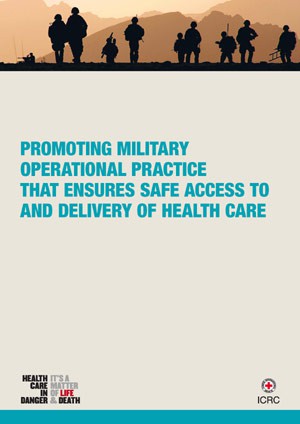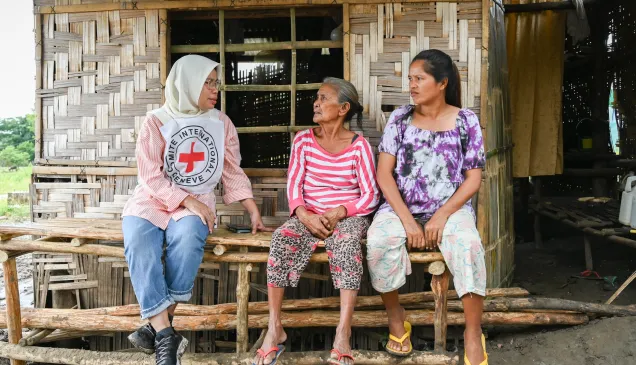Health Care in Danger: New tool for State armed forces
A new publication presents measures to minimize the impact of military operations on the delivery of health care.
Data gathered by the ICRC since 2012 in 23 operational contexts, and published in an annual interim report titled Violent Incidents Affecting the Deliver y of Health Care, show that weapon bearers are among the main perpetrators of violence against patients, health-care workers and facilities, and medical vehicles. Involving armed forces in the implementation of protective measures is therefore vitally important for ensuring that health care can be provided and obtained in safety.
With this in mind, the HCiD project began a process of consultations with representatives of State armed forces. The aim was to develop measures to minimize the impact of military operations on the delivery of health care. The Australian government and the HCiD project jointly organized a workshop on military practices in armed conflicts and other emergencies, at which the participants – military, operational, medical and legal experts recently deployed in conflict zones – drew on their experiences to discuss how health-care delivery could be protected more effectively.

The measures that emerged from this process are presented in a report entitled Promoting Military Operational Practice that Ensures Safe Access To and Delivery of Health Care. They focus on three areas: checkpoints, search operations in health-care facilities, and the consequences of deploying or attacking military objectives inside or near health-care facilities.
Check points can make use of a clearly marked 'fast lane' to hold up medical vehicles as little as possible. When this is not feasible, signs permitting medical vehicles to drive to the front of the queue can be displayed. This is just one example of the measures described in the report.
By adopting such measures whenever possible, military personnel and authorities can make certain that their operations will not have an adverse effect on access to health care. The report can now be ordered online at the ICRC's e-shop.



